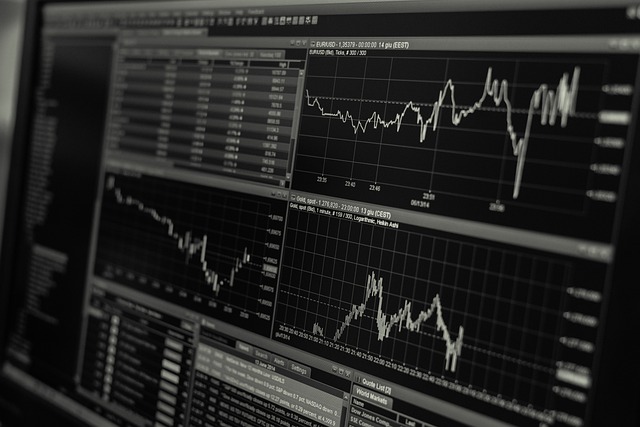Bitcoin AI: The Transformation of Cryptocurrency Trading
The digital currency landscape is evolving at an unprecedented pace, and at the forefront of this evolution is the integration of artificial intelligence (AI) into Bitcoin trading. As cryptocurrencies continue to gain popularity and legitimacy, the application of AI technologies is reshaping how traders and investors approach the market. This article explores the intricate relationship between Bitcoin and AI, illuminating its implications for the future of trading.

Understanding Bitcoin and AI Integration
The marriage of Bitcoin and AI is not merely a buzzword; it's a tangible advancement that allows traders to harness the full potential of both worlds. Traditionally, trading has relied heavily on human intuition and extensive research. However, as the cryptocurrency market matures, the complexity and speed of transactions necessitate the need for sophisticated tools.
What is Bitcoin AI?
Bitcoin AI refers to the use of artificial intelligence algorithms and machine learning models to analyze vast amounts of cryptocurrency market data, predicting price movements, and optimizing trading strategies. Unlike traditional trading methods that can be slow and tedious, Bitcoin AI leverages technology to make split-second decisions that can maximize profits and minimize risks.
The Mechanics of Bitcoin AI
AI algorithms range from basic statistical models to complex neural networks. These models analyze historical price data, market sentiment, trading volume, and even social media trends to identify patterns that can forecast future price movements. It's fascinating to witness how advancements in technology can give traders a competitive edge; however, there are inherent risks involved, and that’s where understanding the technology becomes crucial.
Advantages of Bitcoin AI in Trading
Increased Efficiency: AI can process data at lightning speed, making it possible to execute trades much faster than human traders.
Enhanced Decision Making: By basing decisions on data-driven insights rather than emotions, traders can reduce the likelihood of costly mistakes.
24/7 Trading Capability: AI-driven systems can operate round the clock, ensuring that opportunities aren't missed due to time constraints.
Adaptability: AI algorithms can learn in real-time, adjusting strategies based on ever-changing market conditions.
Challenges and Concerns
Market Volatility: Cryptocurrencies are notoriously volatile, and there's a risk of significant losses if algorithms malfunction or misinterpret data.
Overfitting: AI models can become too complex, tailored to historical data and failing when applied to real-world scenarios.
Dependence on Technology: Relying solely on AI may lead to complacency among traders, who might overlook essential market fundamentals.
The Rise of Bots in Crypto Trading
As AI technology continues to grow, many traders are turning to automated trading strategies, which are sometimes referred to as "bots." For an in-depth understanding of this phenomenon, I highly recommend reading The Rise of Bot Crypto: Exploring the World of Automated Trading. This article dives deep into how automated bots are transforming the landscape of crypto trading by providing insights into their operations, effectiveness, and potential impact on traders of all levels.
The Significance of Trading Bots
Trading bots have democratized access to sophisticated trading strategies, allowing casual traders to compete with seasoned professionals. They analyze market trends and execute trades based on predefined criteria, thereby eliminating emotional biases that often hinder human traders. However, the allure of easy profits can often lead to pitfalls if users are not well-informed about the functioning and limitations of these bots.
Impact on Financial Markets
The integration of AI and trading bots has implications beyond individual trading strategies. For a more comprehensive look into this, I recommend exploring The Impact of Trading Robots on Financial Markets. This article articulates how the growing use of trading robots is influencing market liquidity, volatility, and the role of human traders in the evolving investment landscape.
Market Dynamics and Liquidity
AI trading algorithms have the ability to react instantaneously to market changes, improving liquidity and enabling tighter spreads. However, the continuous rise of automated trading can contribute to increased market volatility. This is because many AI systems may execute trades simultaneously in response to specific market conditions, leading to dramatic price swings.

Mastering Crypto Trading Signals
Understanding and interpreting crypto trading signals is crucial for any trader looking to gain an edge in a highly competitive field. For a thorough examination of this subject, refer to Mastering the Art of Crypto Trading Signals. This article provides valuable insights on how to identify, analyze, and utilize trading signals effectively, even in the context of AI-driven strategies.
The Importance of Education and Awareness
In the rapidly evolving world of Bitcoin and AI, continuous education is paramount. As traders, we must adapt to new technologies while also being aware of the risks involved. Relying heavily on AI without a firm understanding of the market can lead to severe repercussions. Thus, mastering the art of interpreting trading signals, as suggested in the aforementioned article, becomes an indispensable skill.
Conclusion
The integration of AI in Bitcoin trading presents both opportunities and challenges for traders at all levels. While it enhances trading efficiency and decision-making, it is imperative to remain vigilant about the inherent risks and market fluctuations. As we look forward to the future of trading, our emphasis should be on education, adaptability, and balanced strategies. The realm of Bitcoin AI is an exciting frontier that, when navigated cautiously, can lead to unprecedented levels of success in the competitive world of cryptocurrency trading.